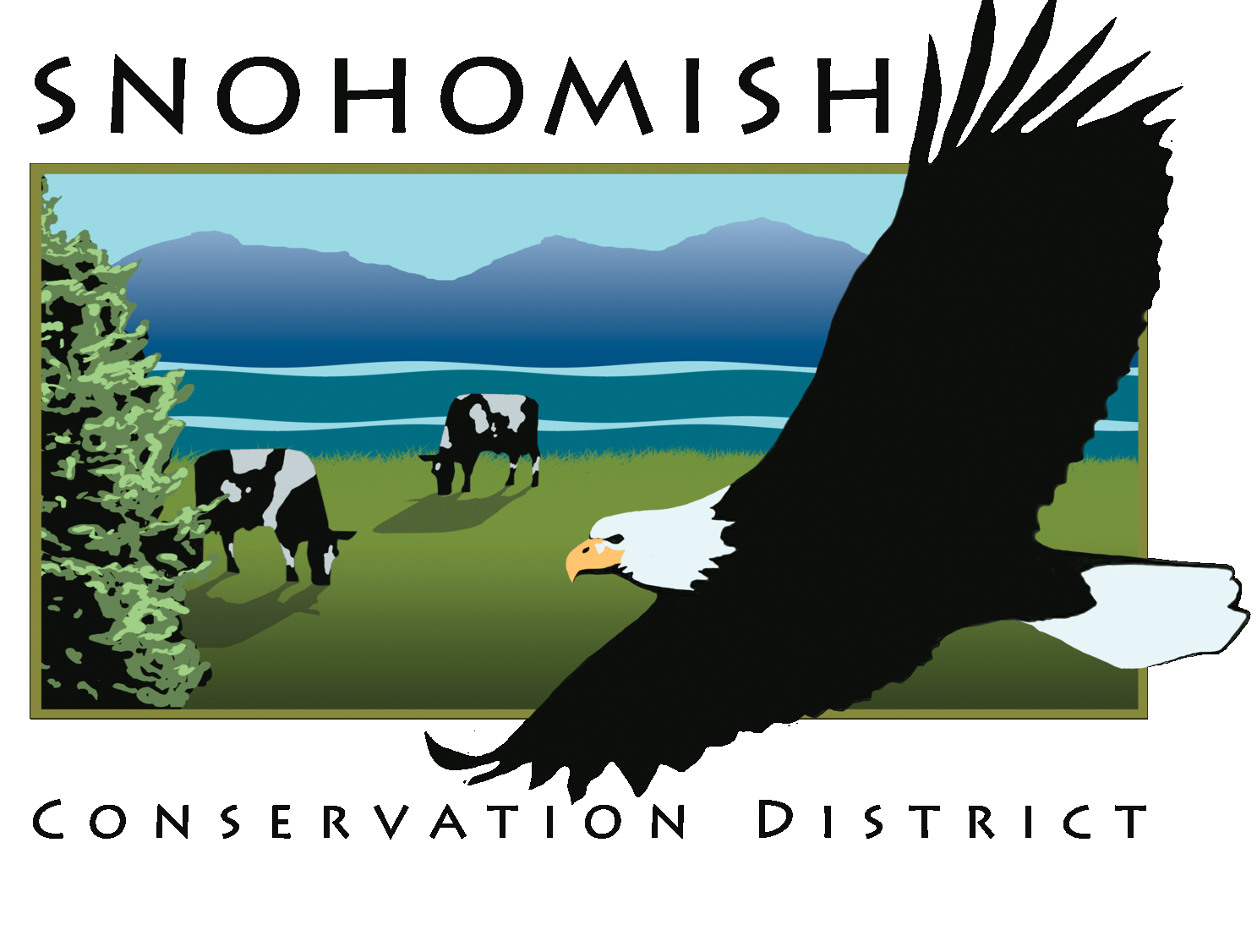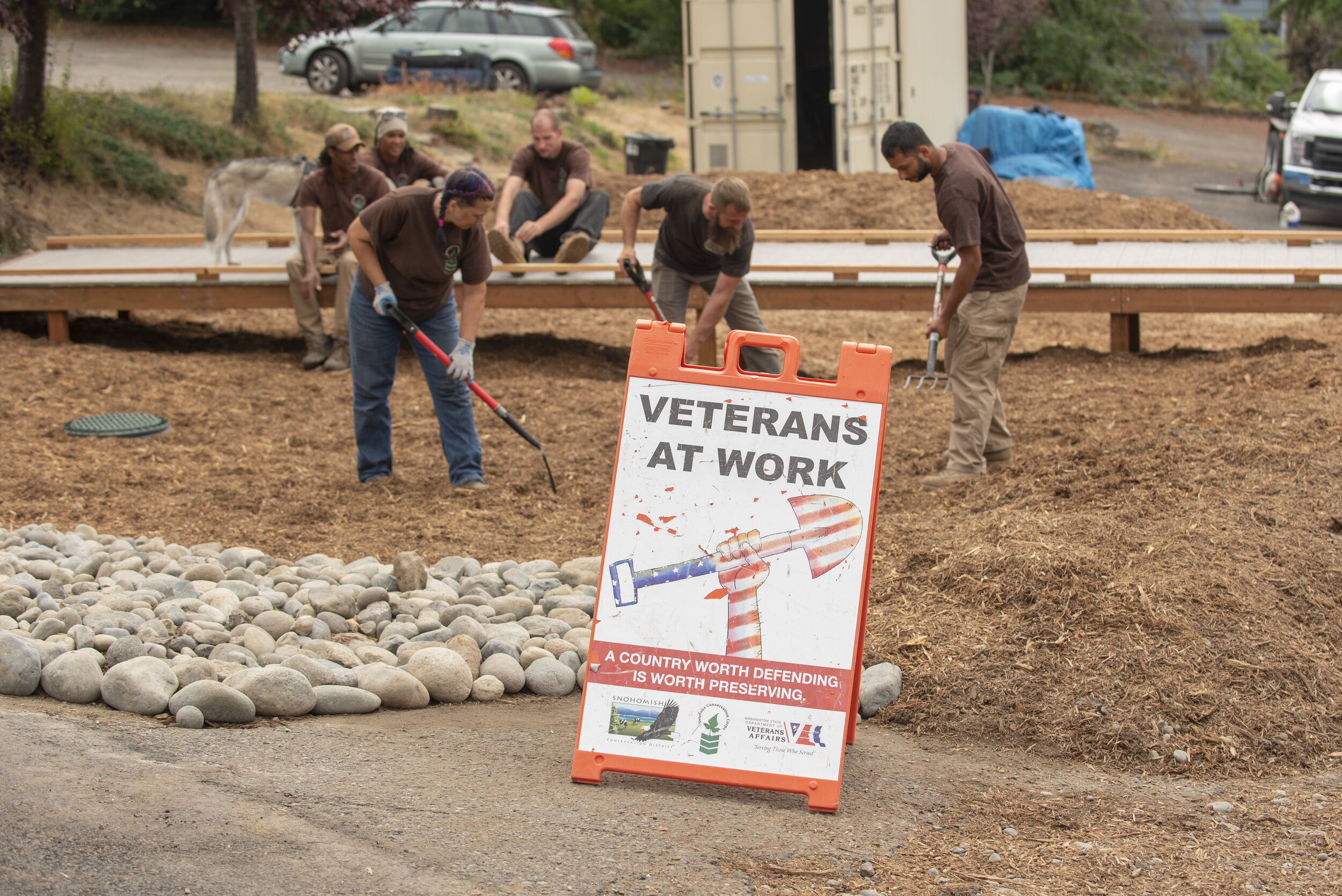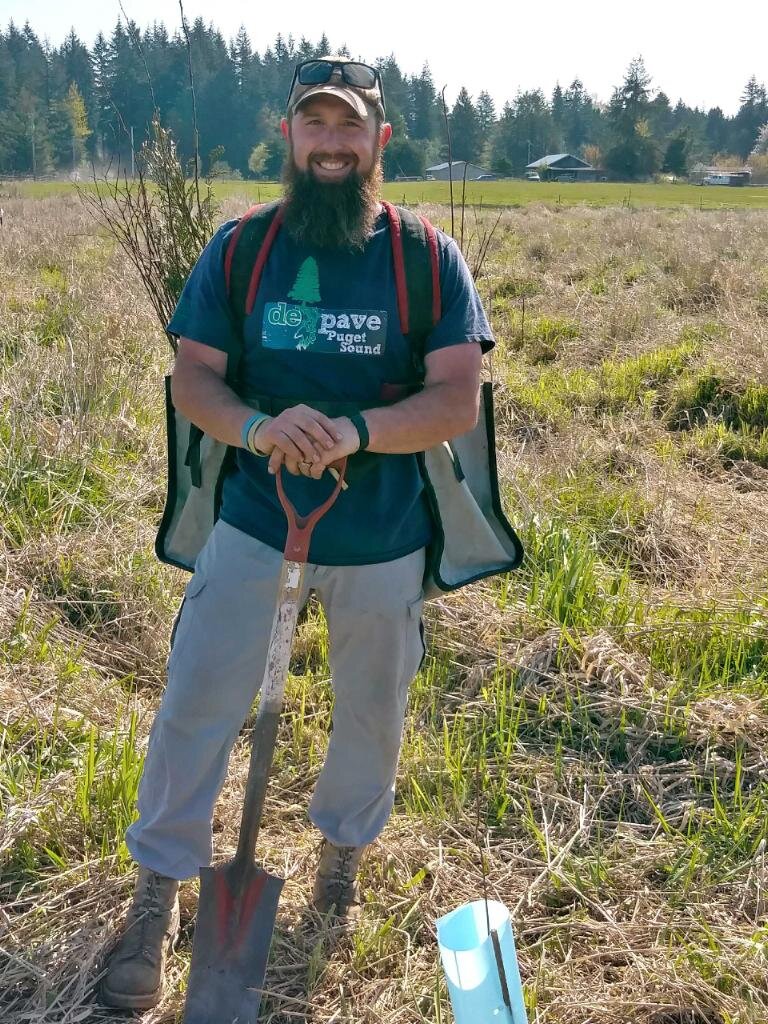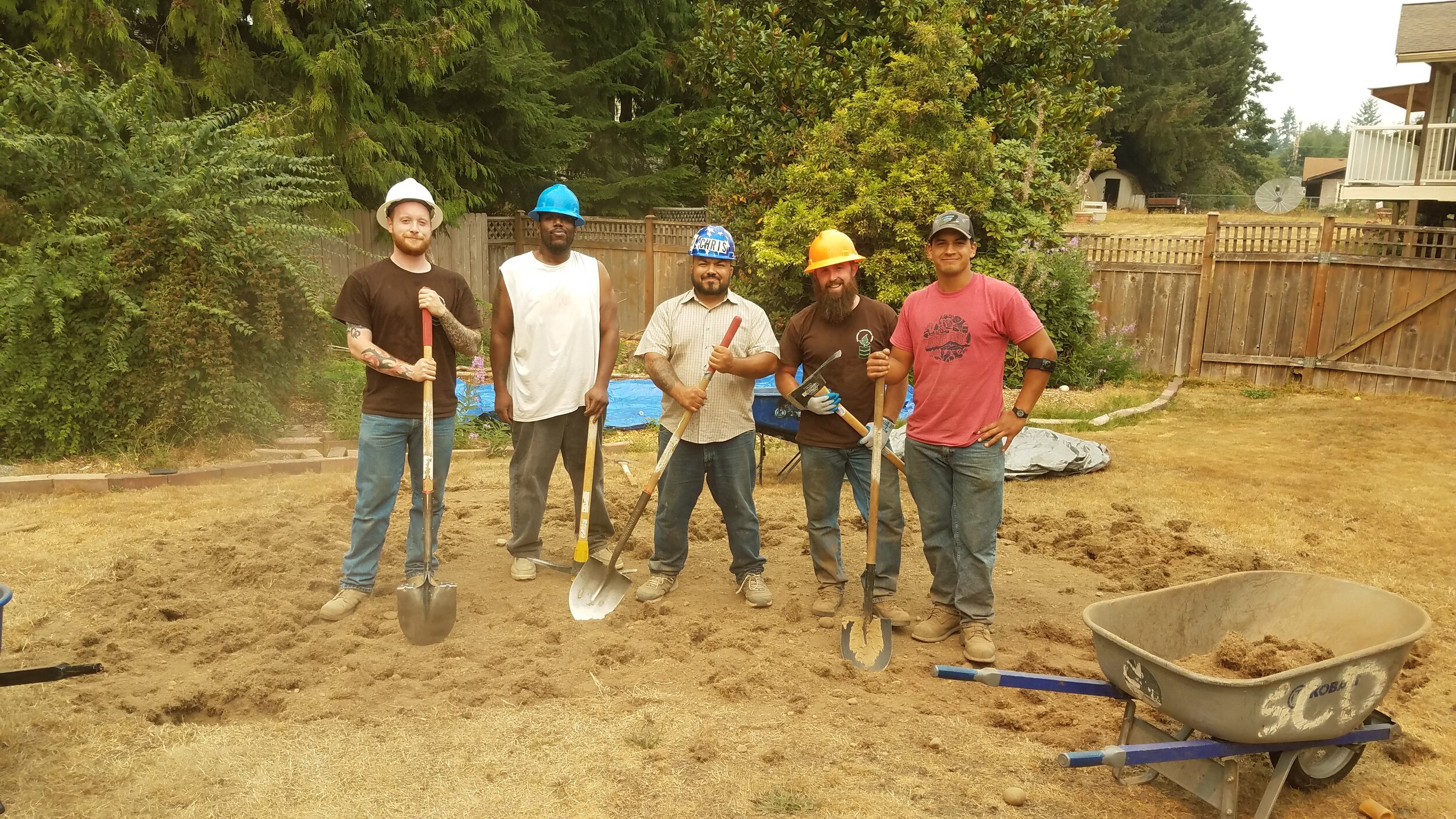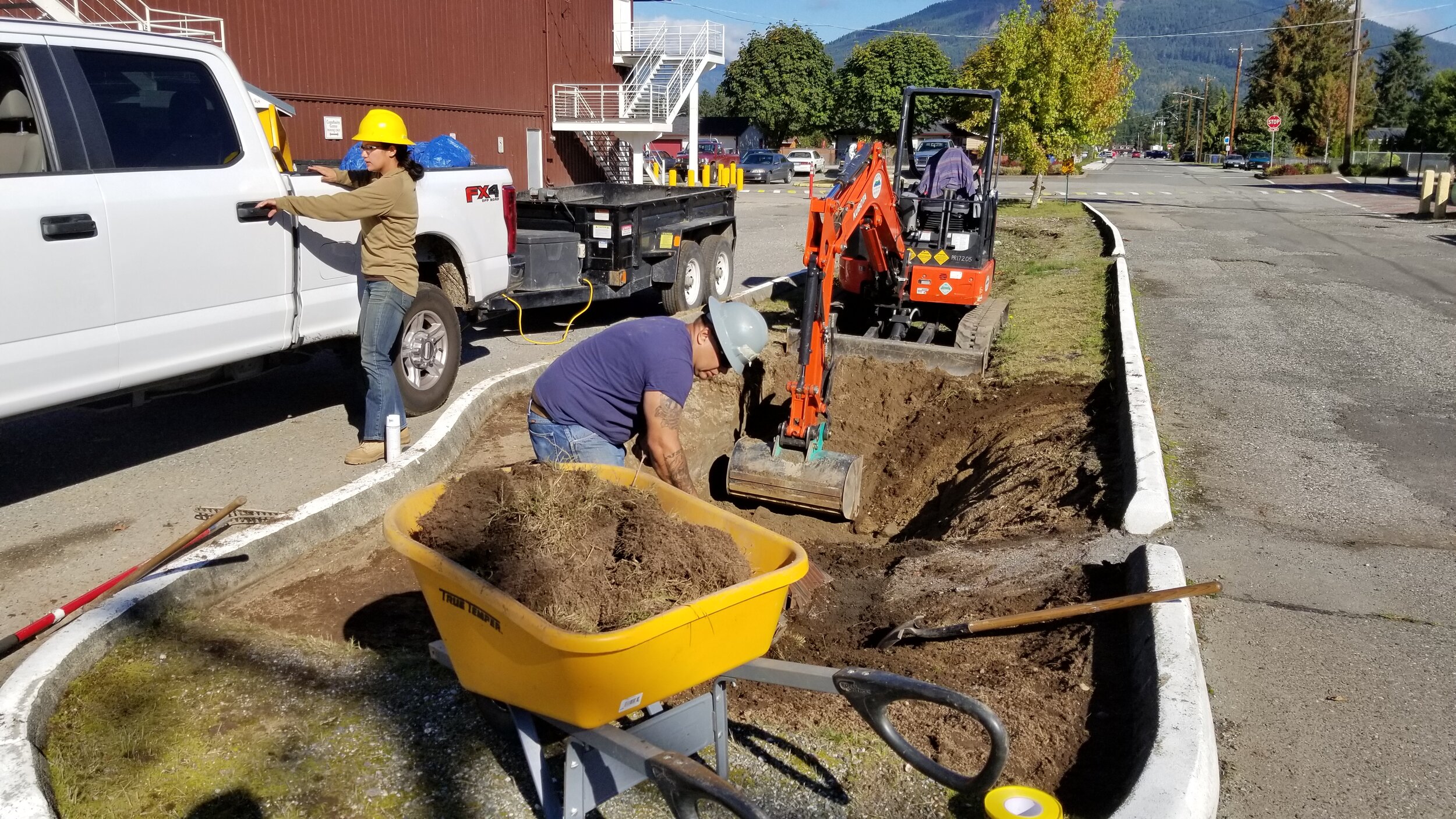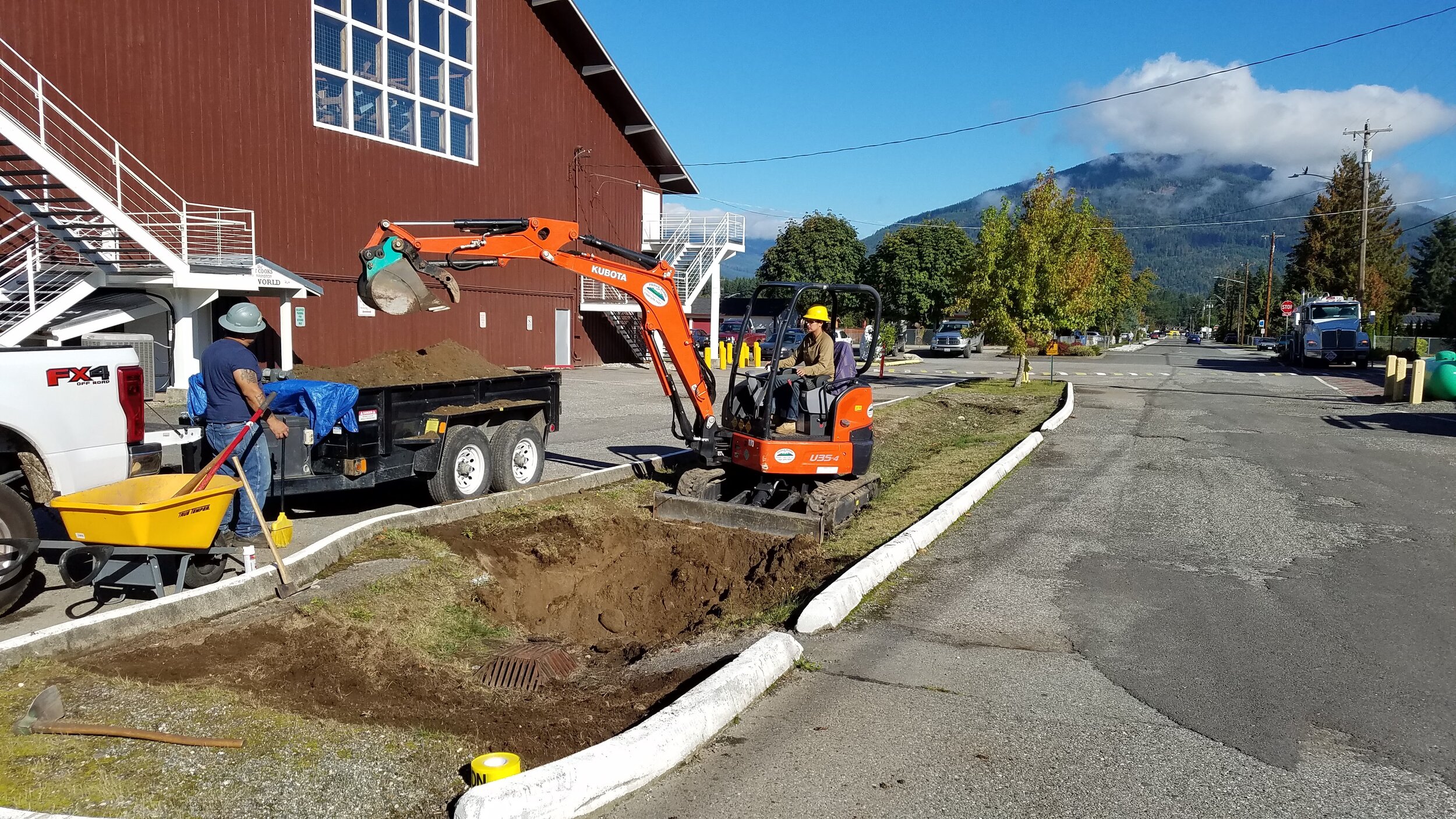Q/A with the Veterans Conservation Corps Crew Lead
/We partner with the Washington Department of Veterans Affairs to host retired/former military veterans in our Veterans Conservation Corps (VCC) crew. These talented individuals work with landowners on stormwater resource concerns within urban and residential areas of Snohomish County and Camano Island, and occasionally in other parts of the Puget Sound region. We sat down with Taylor Pesce, Community Conservation coordinator and Veterans Conservation Corps (VCC) crew lead today to talk about his experience on the job as a crew member.
Taylor Pesce
Before you were the Community Conservation Coordinator, you started out as a crew member. What was your favorite part of the job back then?
It kind of evolved from when I first started, really not knowing anything about VCC or conservation district work and just kind of jumping into it, at least from the community conservation side of things. What I got most out of it early on was just how much community engagement is required to get some of these projects going. That was a really cool aspect to learn about— just how much partnership and buy-in there has to be with everybody and then getting [these projects] all designed and then implemented all throughout the county. And then, just learning about what the conservation district does… That was a pretty cool thing to learn about.
[When I started in the VCC], I was able to do classroom stuff with [the Youth Education Program], and that was a really cool aspect… [As a member of the crew], we can do education, we can do community engagement and outreach. So, we do advertise on the lines of the kind of work we will be doing, but there's always a lot of opportunity to... get their hands into what other parts of the district do. Which is really, really great for experience-gaining and resume-padding.
How did/has the crew helped you in your career?
Going into the VCC program, I really didn’t know exactly what I wanted to go for. I was still in a middle place of education, school, work, and figuring out what I wanted to do career-wise and work-wise after my schooling. Being in the veterans program really opened my eyes to what I could do within a district, or within my work. It refined my idea of my future goals. By just being a part of this district and then working with others, I was able to see the potential for me being able to work in a place like this or something similar.
What are the types of careers people have gone onto from the VCC?
Well, there's been a few that have gotten full or part-time jobs within the conservation districts. For a lot of them, it's a stepping point for school and for the others, it’s been an experience to help them figure out what they want to do. [The crew experience] is a good resource point for figuring out your potential for environmental field work.
Any other advice for someone considering to apply?
A kind of typical theme for the veterans program is, once our service with the military stops, it doesn’t have to fully stop.
Giving back to the community that you're part of… and having that feeling of engagement, as well as some real life, practical experience in construction and environmental practices when it comes to stormwater— there's a lot of great potential for learning about different systems and techniques at getting different projects in the ground, and what they can offer. So, there's quite a wide range of things to learn from just being in the program. It’s up to the individual to push themselves.
VCC Description of duties
Being a member of the VCC partnered with the Snohomish Conservation District, the duties of the individual crew members are long and vary depending on the season. A veteran can join the internship at any time of the year and can commit to a term to term contract or sign on for a whole year at a time with the possibility of serving two full seasons with the VCC.
Beginning in March the crew’s primary tasks involves habitat restoration work for our Natural Resources team clearing invasive species from a given site, then planting native trees and shrubs to rehabilitate the land to a more natural state. This work involves the use of Stihl power brush cutters, DR brush mowers, and various hand tools such as Pulaskis, McClouds, loopers, and machetes. The work exposes the individuals to native plant id, proper planting methods, restoration site prep, first-hand experience in riparian maintenance procedures, and BMP’s(best management practices). This is also where the eco-therapy aspect of the program really takes place. Because of the locations of these sites, individual crew members have an opportunity to connect with the land they are working on, giving them a sense of pride and ownership of work.
The second half of the season brings a change in the type of work performed. During late spring the SCD transitions the VCC to do work for the Community Conservation team constructing LID(low impact development) and GSI(green stormwater infrastructure) projects around the county and beyond. These types of projects give crew members construction experience, project management skills, hands-on time with heavy equipment and power tools. Along with the physical work involved during this season the members need to take an engineering drawing(2D) and make it a reality(3D) for a home or landowner.
Conducting work in an urban setting brings opportunities for the crew members to engage with the public and homeowners, giving them a chance to connect with the local community. This type of engagement can encourage individual crew members to become more involved in their own neighborhood or immediate area.
